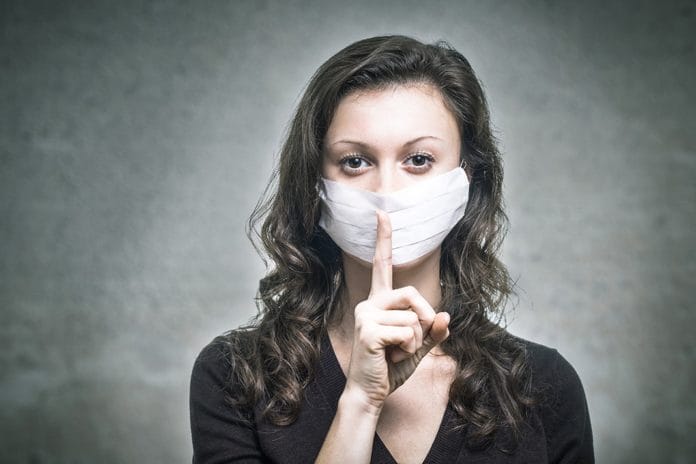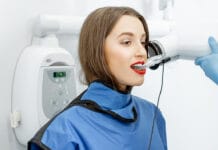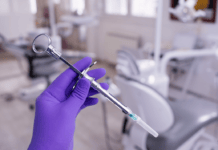Most career paths have a stereotype associated with them, which is usually untrue. For example, doctors are known for having “chicken scratch” handwriting. Librarians are known as little, old ladies with glasses, and police officers are rumored to love donuts. While these stereotypes were meant to be humorous, they don’t define the careers.
Several years ago, before I was even accepted into dental hygiene school, I caught an article shared on social media that described one-liner stereotypes for many popular careers. I remember scrolling through the list and being upset to find that the author claimed that dental hygiene was just a job to do until you get pregnant. Unfortunately, that doesn’t seem to be the only stereotype of a dental hygienist.
After I got into hygiene school and began seeing patients, I realized that the predominant misconception of dental hygienists is that we are all overly chatty people. When I examine my own personality, I find that I couldn’t be more outside of that description if I tried. I have always been very introverted.
Until I started working at a retail job in college, I would shudder at the thought of having to strike up an unrehearsed conversation with a stranger. Even now in private practice, I find it difficult to connect with some patients and make conversation to fill in around my oral hygiene instruction. Most days, I have to make myself step outside of my comfort zone and become a more talkative version of myself to make my patients feel more comfortable.
I often come home feeling exhausted after a long day of being a “Chatty Cathy,” but I tell myself that it’s part of my job description.
Do Patients Want to Listen to Chatty Cathy?
After a particularly tiring day, the thought came to me that maybe this stereotype isn’t true. What if not all patients like having to listen to a one-sided conversation for a whole hour? I did what any true millennial would do and jumped on social media to conduct a survey of my own. I posed the question on my Instagram story: “When you get your teeth cleaned, would you rather have a talkative hygienist or one that only talks when necessary?” I attached a poll with the two choices and waited for the results.
Of the 228 people who viewed it, only 88 answered. I was surprised to find that the majority of my followers who actually answered the poll (59%) preferred having peace and quiet during their hygiene appointment. This means that they would rather only hear oral hygiene instruction when necessary and not stories about everything under the sun. The other 41% preferred to have personal stories along with OHI. Even though I only offered two choices, several people messaged me directly to say that they like an even mixture of both chatty and quiet.
While my Instagram poll was in no way a scientific-based survey, it made me relieved to know that I shouldn’t feel so bad if I can’t find an hour’s worth of conversation with each of my patients. My poll also showed me that, even though it was a very small population size, sometimes people’s preferences will surprise you. I bought into the stereotype that hygienists need to be talkative because that’s what the patients want, but the results of my impromptu survey showed otherwise.
Find out How Talkative Patients Want to Be
Just as we tailor OHI and treatment plans to each patient, we should consider tailoring other aspects of the appointment to each patient also. I often see patients who are very introverted like myself, and it’s like pulling teeth to get them involved in a conversation (no pun intended).
While our primary focus during an appointment should be about oral health and not casual conversations, I think patients will be more receptive of our OHI recommendations if we realize what kind of environment makes them tick. If one patient feels more relaxed by constant casual conversation, by all means, incorporate personal anecdotes between oral health recommendations. If another patient tends to zone out during the important parts of OHI because they find the constant talk distracting, keep conversations to a minimum to ensure that the patient hears your oral health concerns.
If you’re unsure of a patient’s preferences, consider adding a short personality survey to your office’s paperwork for the patient to fill out. Even simply asking the patient at the beginning of the appointment shows that you’re concerned with the patient’s overall dental office experience.
Just as no two patients are alike, hygienists aren’t either and shouldn’t be confined to a blanket statement. Being a talkative hygienist is perfectly okay. Being a quiet hygienist is perfectly okay too. The most important focus should be on finding ways to mesh your personality with your patients’ personalities to provide the most accurate care possible for each individual that sits in your chair.
Before you leave, check out the Today’s RDH self-study CE courses. All courses are peer-reviewed and non-sponsored to focus solely on high-quality education. Click here now.











